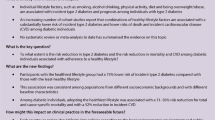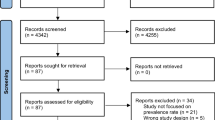Abstract
Metabolic syndrome (MetS) and its components has been thought to be involved in the development of colorectal cancer (CRC). However, the results is often inconsistent according to gender or anatomical location of tumor. This study aimed to investigate the association between MetS and its components and CRC development by gender and tumor location. We evaluated the data of 22,809,722 Korean individuals of the National semi-compulsive cohort who underwent regular health check-ups between 2009 and 2012. Compared to subjects without MetS components, the hazard ratio for CRC development in patients with MetS was 1.22 (95% Confidence Interval [CI] 1.20–1.24) and this association was more prominent in men than in women (HR 1.41 95% CI 1.37–1.44 vs. HR 1.23 95% CI 1.20–1.27, P for interaction < 0.001). Left-sided colon cancers were more associated with MetS among men compared to women (HR 1.70, 95% CI 1.61–1.80 vs. HR 1.43, 95% CI 1.33–1.54), while right colon cancers showed a stronger association with MetS among women than men (HR 1.63, 95% CI 1.49–1.78 vs. HR 1.34, 95% CI 1.24–1.44) (all P for interaction < 0.001, respectively). Having two MetS components was still associated with CRC development and the association was the highest when two of glucose intolerance, abdominal obesity and low high-density lipoprotein cholesterol (HDL-C) combined. Individuals with glucose intolerance, abdominal obesity or low HDL-C levels, may need to undergo thorough screening for CRC even if they do not meet the diagnostic MetS criteria.

Similar content being viewed by others
References
Haggar FA, Boushey RP. Colorectal cancer epidemiology: incidence, mortality, survival, and risk factors. Clin Colon Rectal Surg. 2009;22(04):191–7.
Jemal A, Bray F, Center M, Ferlay J, Ward E, Forman D. Global cancer statistics. CA Cancer J Clin. 2011;61(2):69–90.
Ferlay J, Soerjomataram I, Dikshit R, Eser S, Mathers C, Rebelo M, Parkin DM, Forman D, Bray F. Cancer incidence and mortality worldwide: sources, methods and major patterns in GLOBOCAN 2012. Int J Cancer. 2015;136(5):E359–86.
Shin A, Kim K-Z, Jung K-W, Park S, Won Y-J, Kim J, Kim DY, Oh JH. Increasing trend of colorectal cancer incidence in Korea, 1999–2009. Cancer Res Treat. 2012;44(4):219.
Alberti K, Eckel RH, Grundy SM, Zimmet PZ, Cleeman JI, Donato KA, Fruchart J-C, James WPT, Loria CM, Smith SC. Harmonizing the metabolic syndrome. Circulation. 2009;120(16):1640–5.
Pelucchi C, Negri E, Talamini R, Levi F, Giacosa A, Crispo A, Bidoli E, Montella M, Franceschi S, La Vecchia C. Metabolic syndrome is associated with colorectal cancer in men. Eur J Cancer. 2011;46(10):1866–72.
Regitz-Zagrosek V, Lehmkuhl E, Mahmoodzadeh S. Gender aspects of the role of the metabolic syndrome as a risk factor for cardiovascular disease. Gend Med. 2007;4:S162–77.
Pelucchi C, Negri E, Talamini R, Levi F, Giacosa A, Crispo A, Bidoli E, Montella M, Franceschi S, La Vecchia C. Metabolic syndrome is associated with colorectal cancer in men. Eur J Cancer. 2010;46(10):1866–72.
Ashbeck EL, Jacobs ET, Martínez ME, Gerner EW, Lance P. Thompson PA Components of metabolic syndrome and metachronous colorectal neoplasia. Cancer Epidemiol Biomarkers Prev. 2009;18(4):1134–43.
Russo A, Autelitano M, Bisanti L. Metabolic syndrome and cancer risk. Eur J Cancer. 2008;44(2):293–7.
Aleksandrova K, Boeing H, Jenab M, Bas Bueno-de-Mesquita H, Jansen E, van Duijnhoven FJ, Fedirko V, Rinaldi S, Romieu I, Riboli E, Romaguera D, et al. Metabolic syndrome and risks of colon and rectal cancer: the European prospective investigation into cancer and nutrition study. Cancer Prev Res. 2011;4(11):1873–83.
Ahmed RLSK, Anderson KE, Rosamond WD, Folsom AR. The metabolic syndrome and risk of incident colorectal cancer. Cancer. 2006;107(1):28–36.
LA Stocks T, Johansson M, Rinaldi S, Palmqvist R, Hallmans G, Kaaks R, Stattin P. Components of the metabolic syndrome and colorectal cancer risk: a prospective study. Int J Obes. 2008;32(2):304–14.
Lee J, Lee JS, Park S-H, Shin SA, Kim K. Cohort profile. The national health insurance service–national sample cohort (NHIS-NSC), South Korea. Int J Epidemiol. 2016;46(2):e15.
Y-h Lee, Kim JE, Roh YH, Choi HR, Rhee Y, Kang DR, Lim S-K. The combination of vitamin D deficiency and mild to moderate chronic kidney disease is associated with low bone mineral density and deteriorated femoral microarchitecture: results from the KNHANES 2008–2011. J Clin Endocrinol Metab. 2014;99(10):3879–88.
James PT, Leach R, Kalamara E, Shayeghi M. The worldwide obesity epidemic. Obes Res. 2001;9(S11):228S–33S.
Koo BK, Lee CH, Yang BR, Hwang SS, Choi NK. The incidence and prevalence of diabetes mellitus and related atherosclerotic complications in Korea: a national health insurance database study. PLoS One. 2014;9(10):e110650.
Alberti KGM, Zimmet P, Shaw J. The metabolic syndrome—a new worldwide definition. Lancet. 2005;366(9491):1059–62.
Lee SY, Park HS, Kim DJ, Han JH, Kim SM, Cho GJ, Kim DY, Kwon HS, Kim SR, Lee CB. Appropriate waist circumference cutoff points for central obesity in Korean adults. Diabetes Res Clin Prac. 2007;75(1):72–80.
Bowers KAD, Limburg P, Pietinen P, Taylor PR, Virtamo J, Stolzenberg-Solomon R. A prospective study of anthropometric and clinical measurements associated with insulin resistance syndrome and colorectal cancer in male smokers. Am J Epidemiol. 2006;164(7):652–64.
Wong VWS, Hui AY, Tsang SWC, Chan JLY, Tse AML, Chan KF, So WY, Cheng AYS, Ng WF, Wong GLH. Metabolic and adipokine profile of Chinese patients with nonalcoholic fatty liver disease. Clin Gastroenterol Hepatol. 2006;4(9):1154–61.
Arcidiacono B, Iiritano S, Nocera A, Possidente K, Nevolo MT, Ventura V, Foti D, Chiefari E, Brunetti A. Insulin resistance and cancer risk: an overview of the pathogenetic mechanisms. Exp Diabetes Res. 2012;2012:789174.
Hui JM, Hodge A, Farrell GC, Kench JG, Kriketos A, George J. Beyond insulin resistance in NASH: tNF-α or adiponectin? Hepatology. 2004;40(1):46–54.
Wong VWS, Wong GLH, Tsang SWC, Hui AY, Chan AWH, Choi PCL, So WY, Tse AML, Chan FKL, Sung JJY. Genetic polymorphisms of adiponectin and tumor necrosis factor-alpha and nonalcoholic fatty liver disease in Chinese people. J Gastroenterol Hepatol. 2008;23(6):914–21.
Ryo M, Nakamura T, Kihara S, Kumada M, Shibazaki S, Takahashi M, Nagai M, Matsuzawa Y, Funahashi T. Adiponectin as a biomarker of the metabolic syndrome. Circ J. 2004;68(11):975–81.
Costacou T, Zgibor J, Evans R, Otvos J, Lopes-Virella M, Tracy R, Orchard T. The prospective association between adiponectin and coronary artery disease among individuals with type 1 diabetes. The pittsburgh epidemiology of diabetes complications study. Diabetologia. 2005;48(1):41–8.
Lee S, Ko Y, Kwak C, Yim ES. Gender differences in metabolic syndrome components among the Korean 66-year-old population with metabolic syndrome. BMC Geriatr. 2016;23(16):27.
Riondino S, Roselli M, Palmirotta R, Della-Morte D, Ferroni P, Guadagni F. Obesity and colorectal cancer: role of adipokines in tumor initiation and progression. World J Gastroenterol. 2014;20(18):5177–90.
Aguilar-Salinas CA, Rojas R, Gómez-Pérez FJ, Mehta R, Franco A, Olaiz G, Rull JA. The metabolic syndrome: a concept hard to define. Arch Med Res. 2005;36(3):223–31.
Esposito K, Chiodini P, Capuano A, Bellastella G, Maiorino MI, Rafaniello C, Panagiotakos DB, Giugliano D. Colorectal cancer association with metabolic syndrome and its components: a systematic review with meta-analysis. Endocrine. 2013;44(3):634–47.
Funding
This work was supported by a grant from the National Research Foundation of Korea for the Global Core Research Center funded by the Korean Government (No. 2011-0030001).
Author information
Authors and Affiliations
Contributions
YJC analyzed the data and drafted the article, DHL designed the study and edited the manuscript, KDH performed data handling and statistical analyses and CMS and NK revised the manuscript.
Corresponding author
Ethics declarations
Conflict of interest
The authors declare that they have no conflict of interest.
Statement of human rights
All procedures performed in studies involving human participants were in accordance with the ethical standards of the institutional research committee and with the 1964 Helsinki declaration and its later amendments or comparable ethical standards.
Informed consent
For this type of study formal consent is not required.
Electronic supplementary material
Below is the link to the electronic supplementary material.
Rights and permissions
About this article
Cite this article
Choi, Y.J., Lee, D.H., Han, KD. et al. Abdominal obesity, glucose intolerance and decreased high-density lipoprotein cholesterol as components of the metabolic syndrome are associated with the development of colorectal cancer. Eur J Epidemiol 33, 1077–1085 (2018). https://doi.org/10.1007/s10654-018-0440-6
Received:
Accepted:
Published:
Issue Date:
DOI: https://doi.org/10.1007/s10654-018-0440-6




